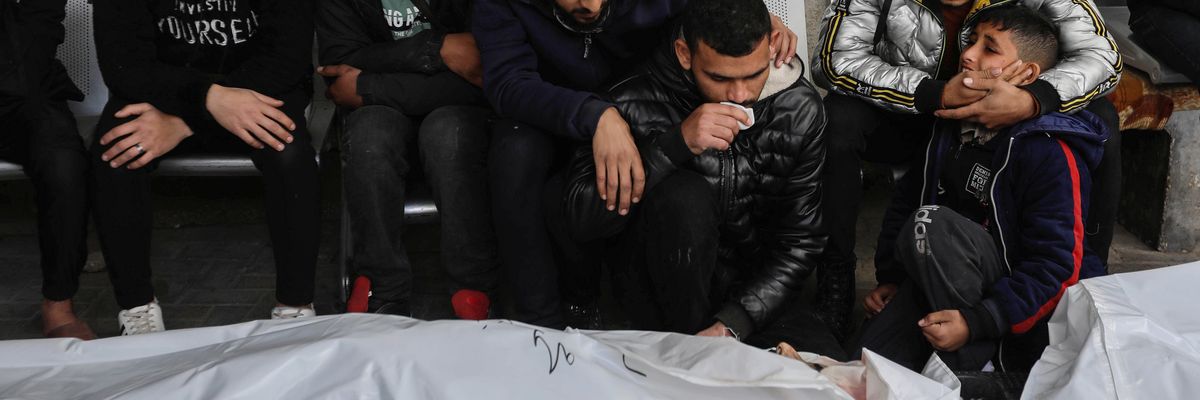United Nations Secretary-General António Guterres said Sunday that the suffering Israeli forces are inflicting on Gaza's population is the worst he's seen during his seven-year tenure, pointing to the decimation of the territory's infrastructure, the large-scale killing of civilians, and the spiraling humanitarian emergency.
"Israel's military operations have spread massive destruction and killed civilians on a scale unprecedented during my time as secretary-general, including more than 150 members of our own staff, following the horrific terror attacks by Hamas on 7 October," Guterres said in a speech at the Third South Summit in Uganda.
"This is heart-breaking, and utterly unacceptable," he continued. "The Middle East is a tinderbox. We must do all we can to prevent conflict igniting across the region. And that starts with an immediate humanitarian cease-fire to relieve the suffering in Gaza, allow humanitarian aid to reach everyone in need, and facilitate the release of hostages, which should be immediate and unconditional."
Since October, Israel's U.S.-armed military has killed more than 1% of Gaza's population—over 25,000 people—and internally displaced nearly all of those who have survived what's been described as one of the most devastating bombing campaigns in modern history.
Across the territory, food and medicine are scarce and disease is spreading, in some cases due to unclean drinking water that Gazans have been forced to consume amid Israel's blockade.
"Access to clean water is integral to staving off famine and disease," Nancy Murray and Amahl Bishara wrote for +972 Magazine last week, "and with the massive destruction of water infrastructure in Gaza—including drinking supply lines, pumping stations, and wells—a full-blown humanitarian catastrophe is at hand."
South Africa cited the targeting of civilian infrastructure and refusal to allow water and other necessities into Gaza in its 84-page genocide complaint against Israel at the International Court of Justice, the U.N.'s highest legal body. The court heard South Africa's case and Israel's response earlier this month.
In the week that followed the closely watched public hearings, Israeli forces killed more than 1,000 people in Gaza, according to the Euro-Mediterranean Human Rights Monitor—an indication that Israel's right-wing government is not letting up in the face of growing international pressure and outrage.
"In stark contrast to the narrative put forth by the Israeli legal team in an attempt to refute South Africa’s claims, the facts on the ground serve as further verification that Israel has been committing genocide against Palestinians in the Gaza Strip," Euro-Med Monitor said in a statement. "Initial estimates indicate that about 6,000 housing units were completely or partially destroyed during the reported period, and that Israel also targeted two universities and seven schools, completely or partially destroying them."
The U.N.'s humanitarian office said Sunday that "intense Israeli bombardments from air, land, and sea continued across much of the Gaza Strip" over the past few days even after Israel's military claimed to be entering a "more targeted" phase of its military campaign.
James Denselow, the head of conflict and humanitarian policy at Save the Children, toldThe Guardian on Monday that "we've got a very recent history of large-scale crises across the region and now we have the most intense conflict we've seen in the modern generation, which risks creating a conflagration between these other conflicts."
"For us, as a humanitarian children's agency, it's pretty apocalyptic," Denselow added.

